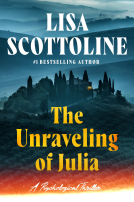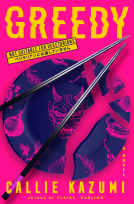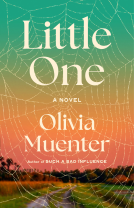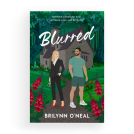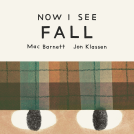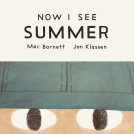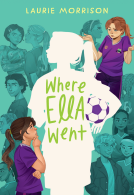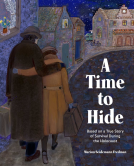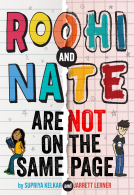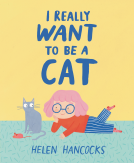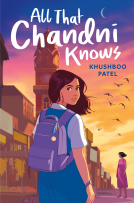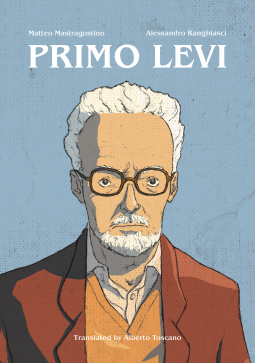
Primo Levi
by Matteo Mastragostino, Illustrated by Alessandro Ranghiasci, Translated by Alberto Toscano
This title was previously available on NetGalley and is now archived.
Send NetGalley books directly to your Kindle or Kindle app
1
To read on a Kindle or Kindle app, please add kindle@netgalley.com as an approved email address to receive files in your Amazon account. Click here for step-by-step instructions.
2
Also find your Kindle email address within your Amazon account, and enter it here.
Pub Date Mar 22 2021 | Archive Date Mar 22 2021
Talking about this book? Use #PrimoLevi #NetGalley. More hashtag tips!
Description
“It’s a pretty long story,” Primo Levi tells a classroom of children, “so I’ll try to make it simple.”
Translated from the original Italian, this hauntingly illustrated comic tells the story of the Italian Jewish chemist who survived the camps at Auschwitz against all odds. Matteo Mastragostino draws on historical research, interviews, and Levi’s own landmark books to piece together a fictionalized yet profoundly intimate portrait of a courageous figure.
In the scene that emerges, Levi visits a group of schoolchildren to retell his life story and keep the memory of the Holocaust alive, answering innocent questions with hard truths. Sobering yet tender, Primo Levi extends a rare opportunity for readers both young and old to deepen their understanding of life, death, and the human spirit.
Available Editions
| EDITION | Paperback |
| ISBN | 9781771135221 |
| PRICE | CA$21.95 (CAD) |
Links
Average rating from 46 members
Featured Reviews
Primo Levi is a visually appealing and wonderfully written examination of the author's life. I appreciated this book as an opportunity to introduce an important literary voice to readers through both words and pictures.
To say this left me shook feels like an understatement, Ranghiasci's art is as haunting as the pictures I remember first seeing as a young child, but also having this story told in the way it was naritavely felt very different from how I was initially introduced to this piece of history. I felt like it was impactful in such a different way,
This book would be such a great way to introduce this topic, rather then just diving into the history.
 John L, Reviewer
John L, Reviewer
A successful graphic novel look at the life of Primo Levi, chemist by schooling, writer from necessity, and Auschwitz inmate through, well, a mix of bad luck and of course the Nazis' will. I got the inference Levi only joined the Resistance because he was chasing tail, but either way the pacifist was soon caught, and had to take the easier path, of declaring himself Jewish and therefore camp fodder, as opposed to calling himself some kind of freedom fighter and therefore being immediately shot. Dressed in spartan black and white, this book almost matches the infamous camp uniforms in colour, but framed as a talk given to a class of inquisitive young hot-headed kids back in his childhood school, it gets to skip through his life with ease. The imagery, even when touching on the almost stereotypical, the shuffle, the jam-packed barracks, the piled-up corpses, is starkly emotive, showing if it shows anything the complete reduction of dignity the camp produced. Several addenda take the book away from the school shelf where the core of it would succeed most, into the realm of historian's artefact, but that takes little away. As a debut work for both the author and the artist, this is sterling stuff. A strong four stars.
 katarina o, Reviewer
katarina o, Reviewer
The graphics are stunning and chilling, and bring this story to life. I have just finished reading, and I’m speechless....how do I say the book is excellent, when the content is horrific? I highly recommend everyone read this, it’s so important we don’t forget.
This book is exceedingly well drawn. I found the story lacking in the sense that there was just not enough there. Reading the afterwards gave me some additional context. This man had a life changing experience which obviously haunted him to his end days. he also made it his life’s work to tell his story of being at Auschwitz. I just wish the author had done that tale a bit more justice.
Too short for me. I really enjoyed this biography on Primo Levi but it sometimes felt like the graphic novel was, in a way, only superficially covering his life. However, that is proof that the story was nicely told since I was longing for more, for the author to go deeper and to tell the story of Primo Levi for more pages. The narrator did a great job with this book; it recounts well the experience of Primo Levi and I really liked how it was presented, going back and forth from the classroom with the students’ interaction to the past events of the Holocaust.
What I loved the most in this graphic novel are the drawings, just looking at some of them brings tears to my eyes. You could almost follow the story and get all the amotions just for the drawings. Alessandro Ranghiasci did an amazing work.
I have to admit it, I have never read the book Survival in Auschwitz by Primo Levi because I thought I was never in the mood for it, but now that I have read this graphic novel and learnt more about Levi, it is next in my TBR.
5/5
 Willy M, Reviewer
Willy M, Reviewer
Well worth the read, this book covers the most brutal depths of the tragedy of the Holocaust, as experienced by the writer, philosopher and scientist Primo Levi. If you don't know anything about the Holocaust, this is a book that will haunt and give you a shock that you should be prepared for. Matteo Mastragostino has presented a good recount of Levi's experience, and it is well illustrated in all its horror by Alessandro Ranghiasci. Do no take this lightly, this is a book that tackles the subject in depth. As a graphic novels go, this one stretches the full power of the medium.
Now, even though I could speak of great praise for this book, it is not a book you can read alone in any sense. The material is very brutal and its best to have some one to talk to about what you see and read. Secondly it is not a book you should ever read without having read or an intention to read the works of Primo Levi. He wrestled with the experience and was able to present an optimistic picture of man, despite the experience. If you wish to start the journey with Primo Levi, you must go the distance and read how he was able to rise above this experience. He was one of the true heroic geniuses of literature in the twentieth century. This is a great companion to his books.
I don't know where to start this review...
Primo Levi was so beautiful and sad at the same time. I finished it a few days ago and I'm still thinking about it.
This is a graphic novel in which Primo Levi meets the students of the elementary school (in which he went as a kid) and tells them his story and about life in Auschwitz.
"To resist you don't need guns. Your only weapon is the desire not to give up."
Illustrations are black and white, drawn only with a pencil, I think. They look so raw, sad, and rigorous, which makes the story more powerful than it would be in color or some other drawing style. I'm speechless.
*The scene that got me crying like a baby*
Primo: A camp is a place where you are forced to stay against your will, captive. A grim place, where people are always unhappy.
Kid: That's practically like school!
Primo: NO!
Primo: You're here in your nice classroom, soon you'll go home to your parents. You have books, clothes and plenty of food. You're free. Because that's what school is for.
Primo: Want to know what I remember about the camp? The barbed wire.
*crying*
This is certainly a must-read book!
* Thanks to @netgalley and publisher for a copy of this book in exchange for an honest review *
 Mell K, Reviewer
Mell K, Reviewer
Auschwitz stories always make me sad and scared.
This one was told to a class by a survivor and I really liked the black and white art, tho the faces made me rather uncomfortable.
There are also some typos here, so please fix that.
Primo Levi must be one of the best known survivor of the Holocaust. A young Italian man, he managed to get into university just before the fascist government started enacting tougher legislation against Jews and he took part in the Italian resistance around the Alps before being captured and sent to Auschwitz, where he barely made it out alive; and then on the long march back to a ravaged Italy.
The authors made the right choice by focusing on Levi's later life and using a curious fact about him to present his story: Levi found work in his field, Chemistry, after the war, but he knew he had to tell his experience of the Holocaust, and he did so not only through his written work, but also by visiting his school every year and answering children's questions. This helps us see the Shoah from Levi's memory, and the kids can ask questions that may feel forced or silly in other situations.
The art is relatively simple, grey, bleak, sad, tough. It feels well suited for this story, impactful. You can almost feel the cold seeping through the pages and sending chills down your spine.
I knew a bit about Primo Levi before reading this comic, but even then, I ended it with tears in my eyes. It is a good testament to his life; not what happened to him, but what he chose to do afterward.
 Reviewer 299423
Reviewer 299423
Dark illustrations, grim and unforgettable. It highlights Levi’s time in Aushwitz at a time when the world is darker again. Levi’s plea at the end on behalf of Halocaust survivors was heartbreaking as it seems we are at a time when people are willfully forgetting or remaining purposely ignorant of historical events.
 Kip K, Reviewer
Kip K, Reviewer
A brief sojourn into the life of Levi. Have always planned to read more of his books, this was an excellent bio on his time in the war. As with all holocaust stories, its an invaluable depiction of a story that should be told often and never forgotten.
The artwork is unique, it clearly depicts the misery of the moment, without overwhelming you with it. This lets the story continue to do the heavy-lifting without the need to put the book down.
Many thanks to NetGalley and the publishers, Between the Lines, for sending me this graphic novel for review.
It is a pity we cannot read the original version written in Italian by Matteo Mastragostino; however, the graphic novel has been extremely well translated by Alberto Toscano. Though Toscano seems to have a very intellectual list of publications to his credit, his translation is fluent and easy to read. I’m glad that the illustrator, Alessandro Ranghiasci, decided to make the illustrations in black and white and not in color. The visuals are hard hitting and visceral and give it a sense of gravity and seriousness—a book not to be taken lightly. Though most of the illustrations are ones we have seen before, Ranghiasci manages to do more in his visuals than the written word. The images of the crowded trains, the fear of the prisoners who are chosen for the showers, the emaciated Jews add to the poignancy of the text.
Though I knew that Levi was a prisoner in Auschwitz, I was not aware of his background in Chemistry and that fact that this saved his life. Though the novel is set in a present-day classroom of elementary school students, the narrative works backward and forward. The present carefree reality makes the grim scenes of the concentration camp seem even more horrendous. When the students are told that they were going to listen to a man’s experiences in the war, they expect a young and dashing soldier—a superman, a man with a gun. When Levi, now an old man, speaks about his not being able to use a gun, a youngster feels it was pointless to have given him one in the first place—a waste of bullets. Levi’s reply is stunning and revealing: “To resist, you don’t need guns. Your only weapon is the desire not to give up.” Of course, what Levi has to say is heart wrenching, but it is also interesting to note the changes he achieves in the thought processes of these youngsters. They are forced to abandon their stereotypes by the end of the novel.
This book is easy to read and should form an essential part of every school library so that children are made aware of this unpleasant period in our history. My only regret is that it is could not have been longer.
 Educator 539848
Educator 539848
This is an incredible graphic novel, telling a story of Primo Levi giving a talk to a class of school children, about his experiences during World War Two. To say that the book is harrowing would be an understatement but I should think that this would be the case with any books on this topic. It is so important that these books are written because, as Primo Levi says near the end, "every passing day there's fewer of us to bear the weight of the memory of Auschwitz...because even today our greatest fear remains the same. That we won't be believed, that everything'll be forgotten." These stories must continue to be told and this graphic novel, with Alessandro Ranghiyasci's incredible illustrations, will hopefully contribute to more people learning of the horrors of the Holocaust.
A beautifully illustrated graphic memoir of Italian Jewish writer Levi's experiences during World War II, specifically the time he spent in concentration camp Auschwitz, from 1944 to 1945.
Primo Levi has always been a writer I have heard about, but never read any of his work, or even knew much about him. In this book Levi visits a middle school, quite a while after the war, to tell his story about Auschwitz. This is then used as a framework to tell the story, now and then slipping back to the children, to see their reactions to Levi's shocking story.
And a shocking story it certainly is, delving into the specifics of life in the Lager (German for prison). The art is quirky (but not silly), and does a great job of illustrating the memoir, especially good at conveying the despair.
Since reading this book, I have read the first book (If This Is A Man) in Levi's war memoir trilogy, and I will certainly read the rest. Deeply moving, and every survivor memoir has something to add to the overall Holocaust history.
Primo Levi is a graphic novel about the story of the Italian Jewish chemist who survived Auschwitz. In the novel, Levi visits a group of schoolchildren to tell them about his life and to keep the memory of the Holocaust alive. The children ask innocent questions and Levi answers them with hard truths.
Books about World War Two can be intimidating and heavy to read. As graphic novels, these stories are a bit easier to be consumed. This novel is pure, informative, and the message of this book is important.
"Every passing day there's fewer of us to bear the weight of the memory of Auschwitz because even today our greatest fear remains the same. That we won't be believed, that everything will be forgotten."
 Bucky S, Reviewer
Bucky S, Reviewer
There’s no literary genre more intimidating than the writing about the Holocaust. While it’s really fun to read about military maneuvers and the strategies of World War II, if you don’t read about the Holocaust as well, you’re not getting a full picture of what was happening in Europe. And as the years go by, the Holocaust becomes more of an idea or a story than an experience: each year there are fewer survivors, and these people’s stories are crucial to our historical record.
Where to start? There are no easy books, there are no light-hearted feel-good triumphant stories. The survivals are not victories as we think of them. Perhaps it is the best illustration of survivor’s guilt. And the books are often hefty tomes with small print; they often feel like a textbook in the hands.
Primo Levi joins Maus in an accessible, entry-level literature that doesn’t pull any punches. Emotionally, these books are just as heavy as their prose counterparts, but as graphic novels, they’re more easily consumed. If you’re an adult who reads graphic novels, you’ve probably read Maus already, and this is, after all, a review of Primo Levi, so I’m going to focus on this book. Also, I don’t have the space here to explain to you who Primo Levi is, other than he is one of the best-known survivors of Auschwitz.
Allesandro Ranghiasci’s artwork took a while to assimilate in my brain. It’s usually sparse, with thin line work. At first, when the story was set in its present, as Primo Levi tells his story to a room full of school children, the artwork seems little more than average. But as the story recounts Levi’s past in Auschwitz, the artwork shows its true power, becoming like a horrible memory, hazy, but unforgettable, the details maybe forgotten in the mind of the old man, but the horror and tragedy clear and defined.
Matteo Mastrogostino’s effort is likewise remarkable. This story was written from many accounts that Levi has made about his experience. What to say and what to leave out is always an issue in adapting any kind of work from one genre to another. To evoke the same amount of emotion with a smaller word count is a difficult task, indeed.
We have the first effort both as an illustrator and writer by these two. By the end of the book, I was wondering why I hadn’t heard of them before. I assumed I was out of touch with the world of graphic novels, but it’s their mutual debut. I will definitely pick up their next project.
"Every age has its own fascism, and we see the warning signs wherever the concentration of power denies citizens the possibility and the means of expressing and acting on their own free will. There are many ways of reaching this point, and not just through the terror of police intimidation, but by denying and distorting information, by undermining systems of justice, by paralyzing the education system, and by spreading in a myriad subtle ways nostalgia for a world where order reigned, and where the security of a privileged few depends on the forced labor and the forced silence of the many.”
In Primo Levi's "A Past We Thought Would Never Return," Levi warns of the constant threat of fascism's return. Reading this graphic novel interpretation of his biography with these words in mind, three weeks past an armed white supremacist uprising in DC and one day past the inauguration of a new President seeking to stem this tide, it's a clear reminder that, as the strange Greek character Levi mentions in his farewell, "War is never over. War is always."
📚 Primo Levi by Matteo Mastragostino 📚
______________________________________________
Translated from the original Italian, this hauntingly illustrated comic tells the story of the Italian Jewish chemist who survived the camps at Auschwitz against all odds. Matteo Mastragostino draws on historical research, interviews, and Levi’s own landmark books to piece together a fictionalized yet profoundly intimate portrait of a courageous figure.
In the scene that emerges, Levi visits a group of schoolchildren to retell his life story and keep the memory of the Holocaust alive, answering innocent questions with hard truths. Sobering yet tender, Primo Levi extends a rare opportunity for readers both young and old to deepen their understanding of life, death, and the human spirit.
_______________________________________________
Oh goodness, this was such a beautiful and touching story. I absolutely loved every single moment of it. The illustrations were very well done. I felt so touched following Primo Levi’s story since it actually did occur. It was beautifully told and described every detail in such a lovely way. I really enjoy reading stories told during the Holocaust era and this one is always going to be one I remember. It’s so nice seeing him tell this story to the children in his class room and I felt for him, just as much as I did for everyone who experienced the same story.
Primo Levi is a memoir told in a graphic novel story. I’ll forever be grateful that I read this and this story will always hold a special place in my heart. I only wished I had read this in a physical format because I definitely think I would’ve felt a better way and gained a better experience. Regardless, this was such a lovely story and I’ll highly recommend this if you love Holocaust stories and graphic novels. It was also super easy to read and I finished it very quickly. What a lovely story.
**I received a copy of this story from NetGalley for an honest review, thank you.**
_____________________________________________
Rating: 5/5 ⭐️
_____________________________________________
The life of Primo Levi is well documented but with the stark contrast of the pencil style drawing in black and white, this telling adds a visual element that increases the emotion the story tells. Beautifully and hauntingly done.
#netgalley #primolevi #betweenthelines
 Librarian 506260
Librarian 506260
A good introduction to the war experiences of Italian writer Primo Levi and his time in Auschwitz. The art style suits the story especially in the depiction of the starving people, enhancing the horror greatly. The end notes on how the story was adapted along with the timeline and list of characters give one many avenues to do more reading on the subject. The book uses Levi speaking to a class of school children as a framing device though the visuals of the graphic novel may be too intense for younger ones.
The quote at the end seems especially relevant today, "If understanding is impossible, knowing is necessary, because what happened can return, consciences can be seduced and darkened again--even our own."
A worthwhile addition and a good place to start when learning more about the Holocaust and the full depravity of what occurred.
 Yesenia L, Reviewer
Yesenia L, Reviewer
I received an ARC of this book from NetGalley in exchange for an honest review. Thank you!
I was very interested in receiving a copy of this graphic novel due to its important subject material. I've read most of Primo Levi's works and have written several academic papers on them. He is best known for Survival in Auschwitz, The Periodic Table, The Drowned and the Saved, If Not Now, When?, and many more important writings.
This book is about the Jewish, Italian writer, Primo Levi, and his survival in Auschwitz. For anyone not familiar with Primo Levi, this graphic novel does an excellent job telling his story. The art style fits the horrifying and serious tone of the events of the Holocaust. The visuals are intense and do a great job eliciting the appropriate emotions from the reader. Though it is not a long book, this memoir not only serves as an introduction to the life of Primo Levi, but also shows why its critical that these accounts continue to be told. One quote from the book states, "Every passing day there's fewer of us to bear the weight of the memory of Auschwitz because even today our greatest fear remains the same. That we won't be believed, that everything will be forgotten.". I spent a lot of time thinking on this, and wondering whether we are doing enough to make sure this doesn't happen.
The story was told beautifully throughout the book. It moves between Primo Levi's experiences in during the war and Auschwitz, to an older Primo Levi telling his story to a group of schoolchildren. This kind of storytelling does a wonderful job of showing how the horrors he witnessed and was subjected to, became a weight he would carry throughout the rest of his life. By telling this story in a graphic novel, the writer was able to make it easy to read and more accessible to a larger audience that might be intimidated by the subject matter. Even though it is told as a comic, it still keeps the serious tone of these events. I couldn't recommend this book enough.
I grew up in a predominately Jewish neighborhood. We were the very large Catholic German family. I would go around the neighborhood and earn money doing chores for the elderly neighbors. Unlike most kids I listened, with great interest, to a lot of the stories these elderly neighbors were itching to tell. In this there was a lot of Holocaust stories. This was all before I discovered Primo Levi. It was at University when I took a Holocaust class that I discovered Mr. Levi. Since that time I had read every thing he had written. It would only be logical that I read a book about him and then even more logical that this book be in graphic novel form. I say the latter because in the same course that I discovered Mr. Levi I had also discovered Maus. This form of conveying the story is brilliant. It is harder to convey the horrors and trials of the events described in simple text. I feel with simple text ones sense are, to a degree, dulled. Yet with the graphic novel one has the text and the images at the ready. True, at times ones own imagination could conjure up a worse scene that an image on paper. But I feel with this topic most of us do not want to see that horror. The graphic novel gives us no choice, there it is.
My only real criticism is that I felt the dialogue was difficult to follow at times. It did not flow as easily as it should have. Granted this is not done with final editing. Maybe this was done to save space, I am not sure. My other complaint is that it was not longer. I like the concept of hearing about his story a he spoke to school children. But I wanted more, I felt that they left massive gaps in the story. In my opinion I would liked to have seen this story completed in two books, each a bit longer than this current project. All that being said it was a great read.
When I saw <i>Primo Levi</i> pop up on NetGalley I immediately requested it because I wasn't familiar with who he was. In the U.S. school system, the more common Holocaust texts are the works of Elie Wiesel, Art Spiegelman and of course <i>The Diary of Anne Frank</i>.
This graphic novel is a great introduction to Primo Levi's life and his work. At the end of the book Mastragostino states that his graphic novel is not a retelling of Levi's books, but an overview, and I think he does a good job of doing that. The graphic novel does a good job of bringing Levi's story to a modern and younger audience. The art of the graphic novel is black and white, staggering at times but never grotesque or exploitative towards the victims in the camp so it could be read by younger readers.
Thank you, NetGalley, for the ARC of this book.
Primo Levi
By Matteo Mastragostino, Illustrated by Alessandro Ranghiasci, Translated by Alberto Toscano
Between the Lines
136 pages
**This is an ARC provided by NetGalley for book reviews. Available for purchase on March 22nd, 2021.**
A group of school children wait in their classroom to meet a war hero. One of the kids says to the other that he might be a superman. Their teacher says the man used to go to school here and he has come to tell them a story. The children are excited and eager but when they see an old bespectacled man enter the classroom they are surprised. A war hero? Him? He wasn’t the superman they were expecting. That man is Primo Levi (1919–1987). And he tells all of us the story of his life. The story of how he was captured by the Nazis, sent to Auschwitz, faced the heinous brutalities of the German captors, and how lucky he was to be rescued by the Russian troops.
The graphic novel Primo Levi was originally published in Italian in 2017 by Becco Giallo publications. Thanks to Between the Lines publications, now we have the English translation by Alberto Toscano. Script written by Matteo Mastragostino and harrowing sketches by Alessandro Ranghiasci, the graphic narrative is a short yet impactful story about Levi’s life and the importance of keeping the truth of the Holocaust alive by weaving the children’s innocent questions through the story.
Levi recounts how his chemistry education played a crucial role in his survival. He was given a position in the chemical laboratory. He had the company of Alberto Dalla Volta(1921–1945) at Auschwitz who was his best friend. While Alberto did not survive the camp, Levi would write about his friend’s strength and compassion years later in his books. Lorenzo Perrone(1904–1952) and Lello Perugia(1919–2010) were two other friends who helped Levi at the camp with food, clothes, company and the comfort of speaking in their common tongue. The conversations are written in German sometimes which creates a state of disorientation for the reader who doesn’t understand the tongue. Levi explains to the children that not knowing and understanding German led to the isolation of many Italians. They were alone and could not make others understand themselves making them weak eventually causing their deaths.
The helplessness of the captured people in their claustrophobic encampments and their mental and physical suffering is shown by the use of harsh, erratic, and dense line hatchings. The artist is successful is emoting the blackness of the souls using the volume and density of his hatching lines. They add depth to the darkness like a bottomless pit.
A short graphic narrative has left me quite thoughtful last evening. Quoting Levi will be an apt way to express how deeply moved I was after finishing the book.
“Auschwitz is outside of us, but it is all around us, in the air. The plague has died away, but the infection still lingers and it would be foolish to deny it. Rejection of human solidarity, obtuse and cynical indifference to the suffering of others, abdication of the intellect and of moral sense to the principle of authority, and above all, at the root of everything, a sweeping tide of cowardice, a colossal cowardice which masks itself as warring virtue, love of country and faith in an idea.”
― Primo Levi, The Black Hole of Auschwitz
 Geoff U, Educator
Geoff U, Educator
I really liked the comic, with it's framing story of Levi talking to an elementary school class and frequent flashbacks to his ordeal in the concentration camps. The comic really got across the horror as well as the lifelong effects of the bureaucratic, industrialized genocide of the Holocaust. Where things went a little sideways was in the afterwards, which I felt diminished the emotional impact of the story with an over intellectualization of Levi's life and death. On the whole though, an effecting and effective comic.
A highly successful collaboration between author, illustrator, and translator allows English language readers access to this intimate look at the personal devastation left in the wake of World War II. Primo Levi was an Italian teenager who joined the resistance, was arrested, and was taken to Auschwitz. Because of his education and scientific expertise, he was fortunate enough to have job duties in laboratory, a position which, along with the assistance of an outside sympathizer, saved his life.
This graphic novel tells Levi’s story in a way that conveys the weight he carried for the remainder of his life, both the emotional trauma and the burning need to educate the world regarding the atrocities he witnessed. The artistry is complex and haunting, startlingly realistic in places. The line between the present and the past becomes as blurred for the reader as for the character of Levi as he tells of his experiences. Overall, it is an impactful graphic novel with relevance for a wide readership.
Thank you to Matteo Mastragostino, Alessandro Ranghiasci, Alberto Toscano, Between the Lines, and NetGalley for an Advance Reader Copy in exchange for an honest review.
 Rachel M, Librarian
Rachel M, Librarian
This graphic novel features Primo Levi, Holocaust survivor, speaking to young students at his former primary school. At first the students grudgingly accept Primo Levi as a speaker, dismissing him as just an on old man.
But as Levi describes his experiences the children become engrossed. At the end of his lecture Levi states that he and other Holocaust survivors fear the time when none are left to tell their story. They fear that people will forget and that horrible history will not be believed, forgotten, or repeated. Books like this are urgently needed to keep this from happening.
This graphic novel is well-researched and the Art is shockingly unforgettable, provoking readers to empathy and understanding.
I was given an early release copy of this title in exchange for an honest review.
 Brigid A, Media/Journalist
Brigid A, Media/Journalist
Primo Levi was a harrowing read, although it too left me with plenty to contemplate. First published in Italian, this slim volume by writer Matteo Mastragostino and artist Allesandro Ranghiasci will be published in English by Between the Lines in March. In this black and white graphic novel, Levi talks about his experiences during World War II to an elementary school class, with each turn of the conversation leading naturally into a flashback. The children aren’t too impressed with him at the outset, but Levi doesn’t simply narrate facts, he explains their meaning, and as the conversation continues they begin to get it. which makes this graphic novel a fascinating and thought-provoking read. Mastragostino explains in his afterword that he was 10 years old when Levi died, and he decided to structure the book as if Levi was talking to him as a child. He also discusses the decisions he made about the story, and notes that Ranghiasci did extensive visual research in order to accurately depict Levi’s surroundings. The art is black and white and fairly loose, as if it was rendered in pencil, but it complements the story perfectly, amplifying the emotional impact of Levi’s narrative of his Holocaust experiences.
Beautiful and touching. Simple and clear.
A graphic novel about Primo Levi talking about world war II and concentration camps to an elementary school class..
Great black and white illustrations.
 Althea G, Librarian
Althea G, Librarian
This book is very emotional despite how short it is. Despite not being very graphic, the art and the writing work well to show how violated dehumanized the characters were. I also really appreciate the portrayal of children in this book. They reacted very realistically to an adult speaker of a very serious topic. I wish this book had been a little longer. Levi talks about how luck allowed him to survive the Holocaust but we don’t actually find out how he was able to leave the concentration camp.
Readers who liked this book also liked:
Supriya Kelkar; Jarrett Lerner
Children's Fiction, Middle Grade, Parenting, Families, Relationships

